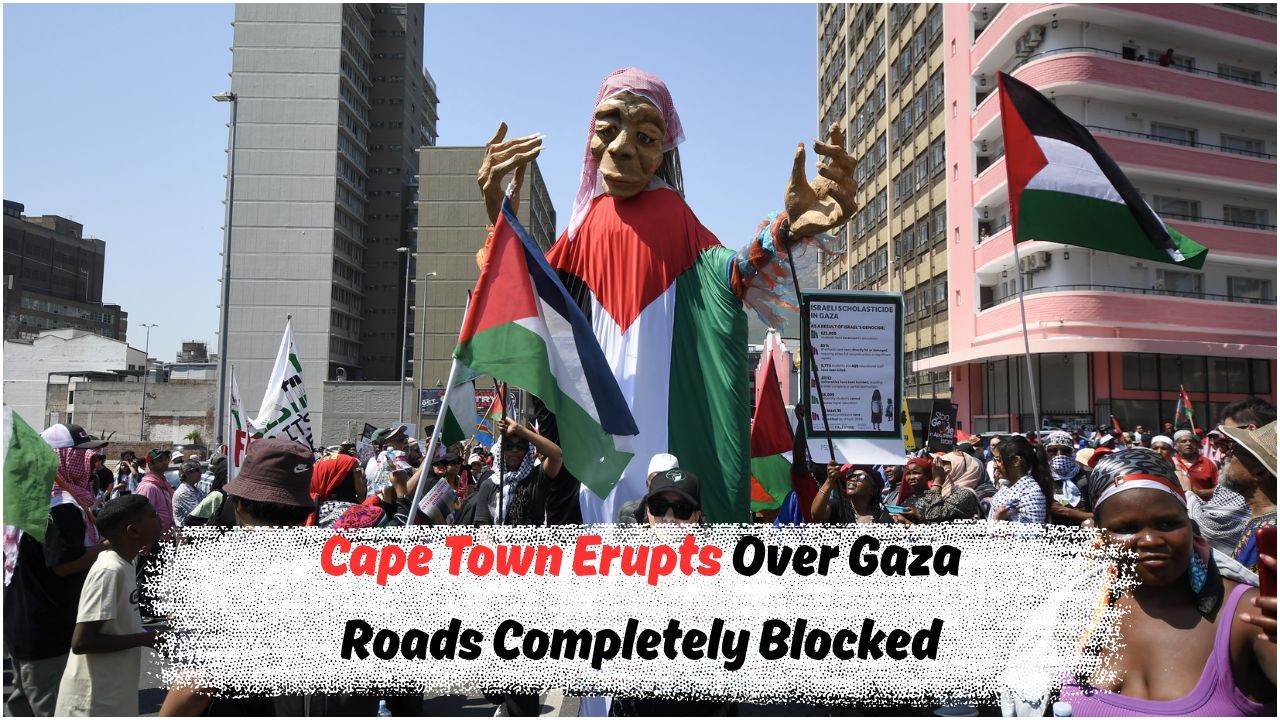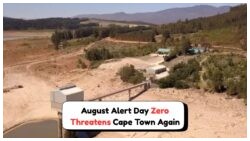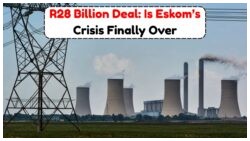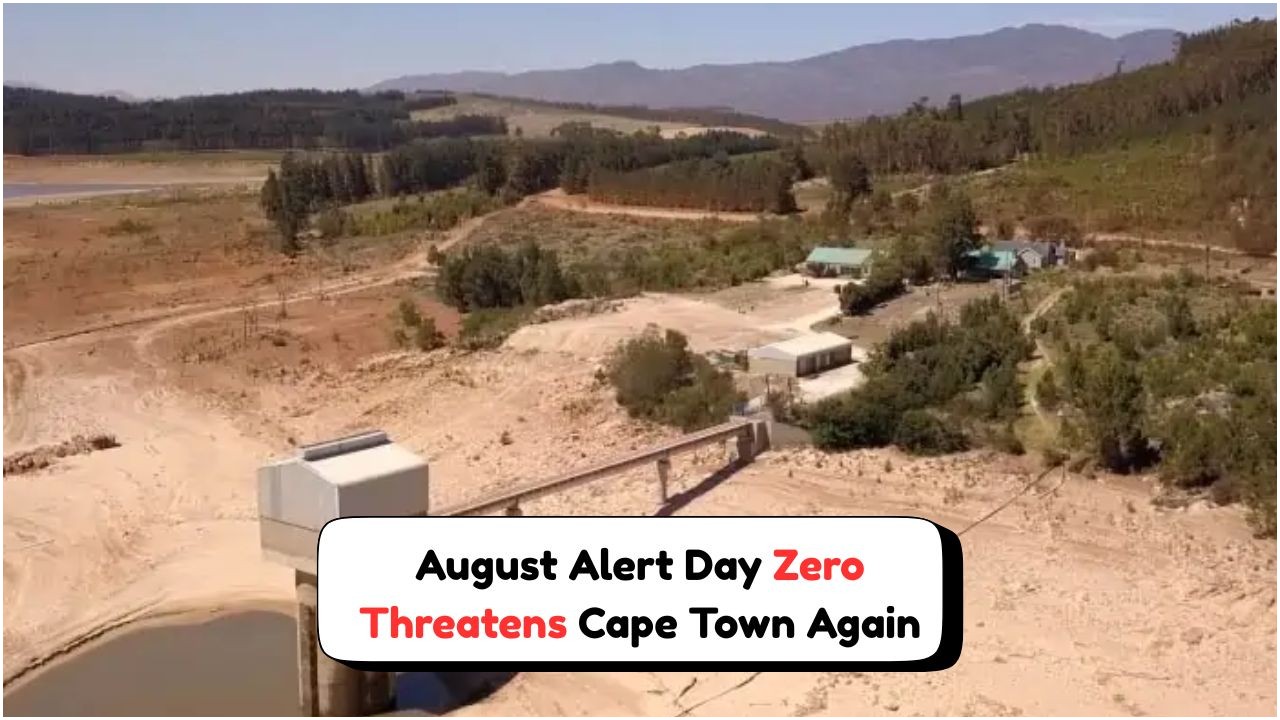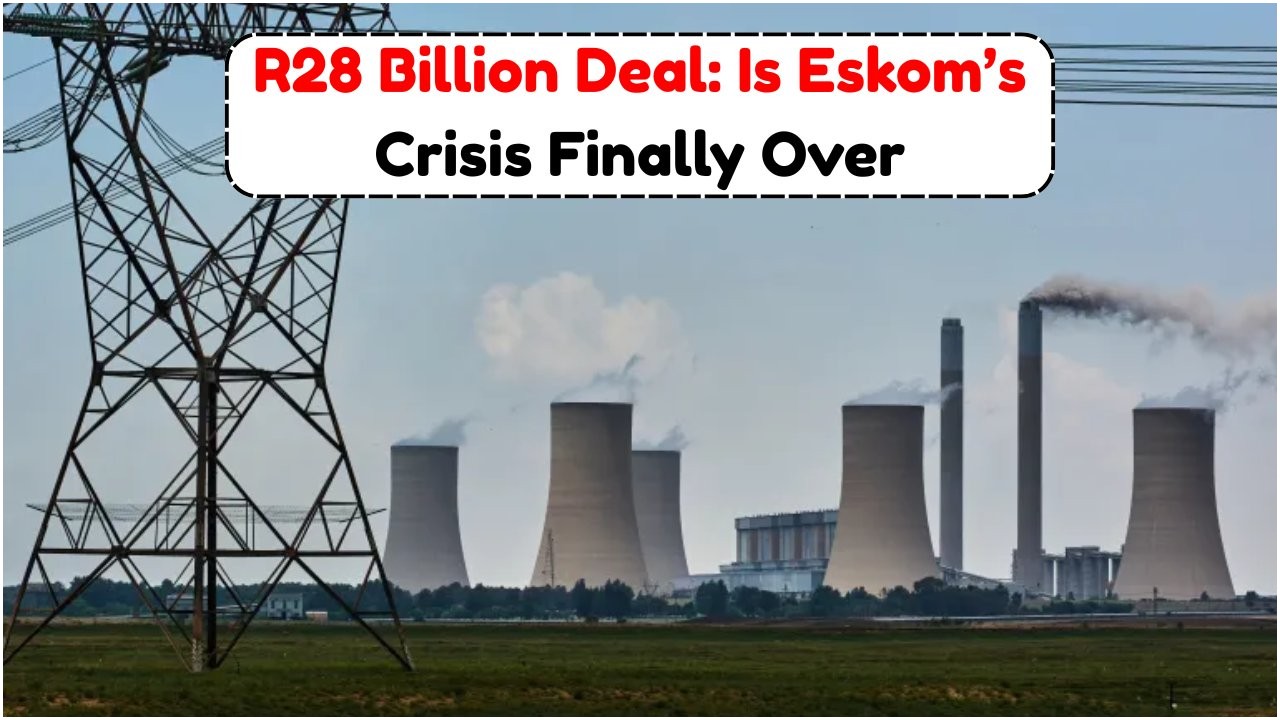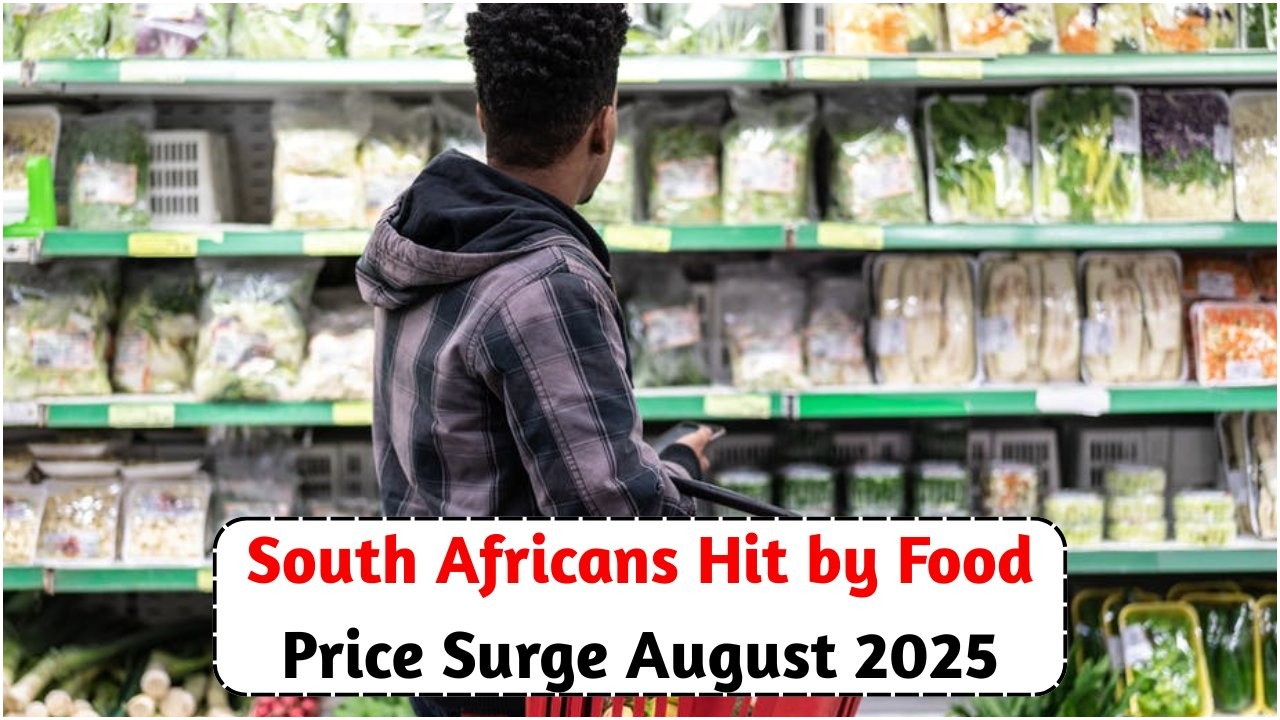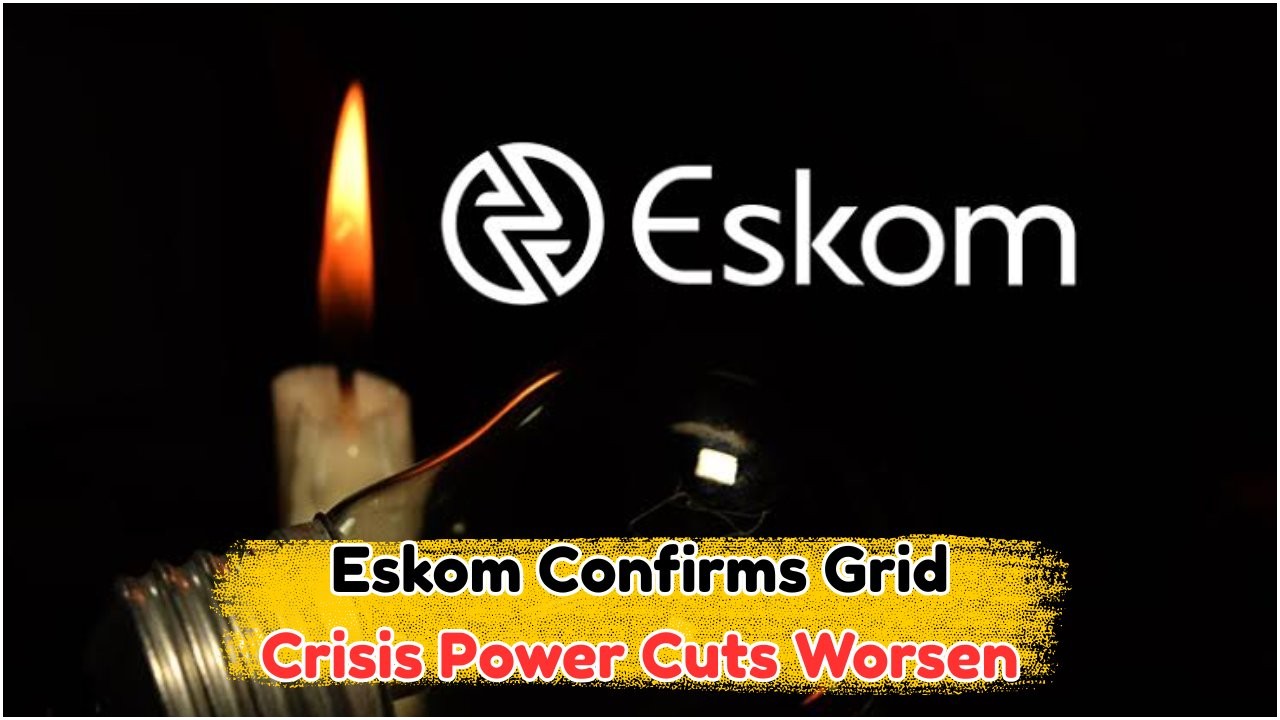Cape Town Protest August 16: The vibrant city of Cape Town found itself at the epicenter of global attention on August 16. A significant protest in solidarity with the people of Gaza took to the streets, drawing participants from various communities. The demonstration was not just a local affair but part of a worldwide response to the ongoing conflict in Gaza. South Africans have long resonated with the plight of those in Gaza, given their own history of apartheid and struggle for freedom. This protest underscored the shared values of justice and human rights, highlighting the deep-seated empathy and solidarity within South African society.
Impact of the August 16 Protests in Cape Town
The protest on August 16 in Cape Town was a powerful demonstration of unity and support for the people of Gaza. Thousands gathered at key locations in the city, holding banners and chanting slogans that called for peace and justice. The protest was peaceful, yet it firmly captured the attention of the media and the international community. The impact was twofold: it not only raised awareness about the situation in Gaza but also showcased South Africa’s commitment to global human rights issues. Such events remind us that local actions can have international repercussions, influencing public opinion and potentially prompting diplomatic responses.
- The protest attracted diverse groups, including students, activists, and community leaders.
- Several speeches were made, highlighting the parallels between Gaza’s situation and South Africa’s history.
- Social media played a crucial role in organizing and amplifying the event.
- The protest was part of a coordinated global day of action.
- Local politicians and celebrities participated, lending their voices to the cause.
- Peaceful conduct was maintained throughout, ensuring a positive message was conveyed.
- Media coverage was extensive, both locally and internationally.
- The event concluded with a moment of silence for the victims of the conflict.
International Reactions to the Cape Town Protest
Following the protest in Cape Town, the international community took note. Many countries issued statements acknowledging South Africa’s stance, with several commending the peaceful nature of the demonstration. The protest was covered in numerous international media outlets, which helped spread the message of solidarity globally. In some regions, similar protests were organized in response, creating a ripple effect of awareness and advocacy. The event also prompted discussions in international forums about the ongoing conflict and the need for a peaceful resolution. The protest demonstrated the potential of grassroots movements to influence global discourse on critical issues.
| Country | Reaction | Media Coverage | Subsequent Actions | Public Statements | Solidarity Protests | Diplomatic Responses | NGO Involvement |
|---|---|---|---|---|---|---|---|
| USA | Acknowledged | High | Statements issued | Support for peace | Yes | Moderate | Active |
| UK | Supportive | Moderate | Discussions in parliament | Condemned violence | No | Limited | Active |
| France | Neutral | Low | None | Called for dialogue | Limited | Moderate | Passive |
| Germany | Supportive | High | Public forums held | Supported UN actions | Yes | Active | Moderate |
| Brazil | Acknowledged | Moderate | Media discussions | Expressed concern | No | Limited | Active |
| India | Supportive | High | Diplomatic dialogues | Called for peace | Yes | Active | Active |
| Australia | Neutral | Low | None | Expressed neutrality | No | Limited | Passive |
| Canada | Supportive | Moderate | NGO involvement | Condemned violence | Yes | Active | Active |
Historical Context of Gaza-South Africa Solidarity
Understanding the historical context of the solidarity between South Africa and Gaza is crucial. This connection dates back to the apartheid era when South Africans found allies in the Palestinian cause. Both regions have experienced struggles for freedom and self-determination, fostering a mutual understanding and empathy. The shared history of oppression and resistance has forged a bond that continues to influence South African public opinion and activism. Over the years, numerous events, such as the August 16 protest, have highlighted this enduring relationship, reinforcing the idea that struggles for justice transcend geographical boundaries.
Key Milestones in Gaza-South Africa Relations:
- 1980s: South African activists express support for Palestine.
- 1994: Post-apartheid South Africa strengthens diplomatic ties with Palestine.
- 2000s: South African NGOs engage in Gaza advocacy.
- 2010: South African government criticizes Gaza conflict.
- 2014: Large-scale protests in South Africa supporting Gaza.
- 2018: South Africa recalls ambassador from Israel over Gaza violence.
- 2021: Renewed protests amid escalations in Gaza.
- 2023: August 16 protest in Cape Town.
Future Implications of the August 16 Gaza Protest
The protest on August 16 could have far-reaching implications for both South Africa and international relations. It has the potential to influence governmental policies, as calls for South Africa to play a more active role in international peace efforts grow. Additionally, the protest may inspire similar movements in other countries, contributing to a global push for resolution of the Gaza conflict. The event underscores the power of collective action and serves as a reminder of the significant role that public demonstrations can play in shaping political discourse and advocating for change. It may also encourage further dialogue and collaboration among international peace organizations.
Potential Outcomes:
- Increased diplomatic engagement from South Africa.
- Greater media focus on Gaza.
- Enhanced international collaboration on peace initiatives.
- Potential policy shifts within South Africa.
- Strengthened global solidarity movements.
- Influence on future peace negotiations.
- Increased NGO involvement and advocacy.
- Heightened awareness and education on the conflict.
FAQs on Cape Town’s August 16 Protest
What sparked the August 16 protest in Cape Town?
The protest was part of a global response to the ongoing conflict in Gaza, aiming to raise awareness and call for peace.
How did international communities react to the protest?
Many countries acknowledged the protest, with some issuing statements of support and others organizing similar events.
Were there any notable figures at the protest?
Yes, several local politicians, activists, and celebrities participated, lending their support to the cause.
What impact did the protest have on South African society?
The protest heightened awareness of international issues and reinforced South Africa’s historical solidarity with Gaza.
Will there be follow-up actions after the protest?
There may be increased diplomatic efforts and continued advocacy from NGOs and activist groups.
